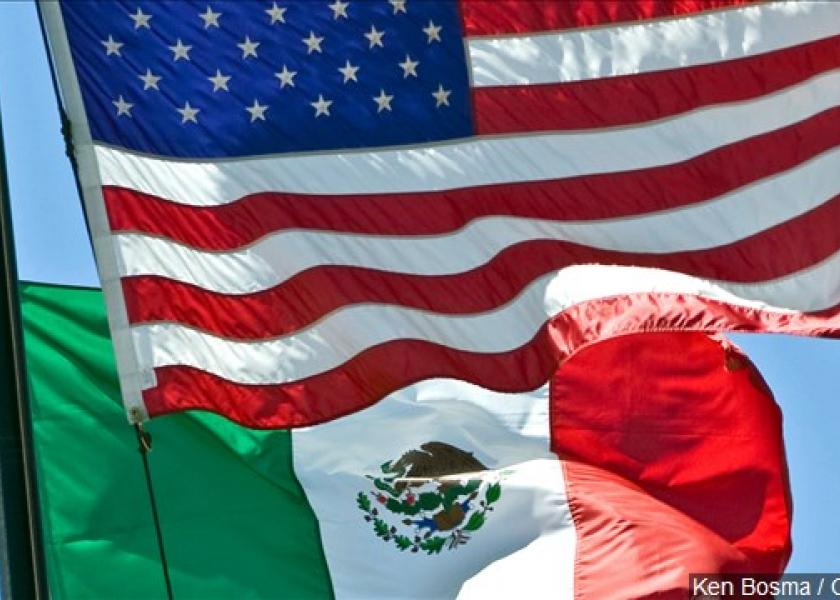UPDATE: U.S. considers steps to protect against seasonal imports

(UPDATED) The Trump administration plans to take steps to protect U.S. growers of seasonal produce against what it calls threats of increased imports, from initiating an International Trade Commission investigation to form an inter-agency group for possible investigations and trade actions.
The Office of the U.S. Trade Representative, the U.S. Department of Agriculture and the Department of Commerce released the administration’s report on Sept. 1, following online hearings on Aug. 13 and Aug. 20 in which dozens of U.S. legislators, growers, trade groups and others outlined what they said were unfair trade practices, mostly by Mexico.
“President Trump recognizes the challenges faced by American farmers and is committed to promoting and securing fair trade and a level playing field for all American producers,” U.S. Trade Representative Robert Lighthizer said in a news release.
The USTR’s Office plans to:
- Ask the ITC to start a Section 201 “global safeguard investigation” on how blueberry imports have adversely affected U.S. growers;
- Pursue senior-level discussions with Mexican officials over the next 90 days to address concerns regarding that country’s exports of strawberries, bell peppers and other produce to the U.S.; and
- Work with U.S. growers to start an ITC investigation into strawberry and bell pepper imports to possibly expedite a Section 201 global investigation.
The Commerce Department, according to the report, plans to establish a program to connect with growers from Florida, Georgia and other states to “enhance understanding” of trade remedy laws and processes. The department will also set up channels to provide information about “unfair subsidies for foreign produce and exporters” of seasonal produce to help the growers identify those subsidies.
USDA plans outlined in the report include:
- Increase outreach to U.S. growers to maximize use of USDA programs;
- Develop a market promotion strategy for U.S. produce; and
- Involve federal agencies to better understand “the extent to which imports of seasonal and perishable products are utilized to enable criminal activity.”
Finally, the three agencies are establishing a working group to monitor seasonal and perishable fruits and vegetables and “coordinate as appropriate regarding future investigations and trade actions” and assist Congressional members in developing legislation.
“This plan does not foreclose additional actions and investigations by the Trump administration to support producers of seasonal and perishable fruits and vegetables,” according to the release. “The administration is dedicated to supporting America’s hardworking farmers across the country and recognizes the importance of preserving and enhancing a diverse and homegrown food supply.”
Florida Agriculture Commissioner Nikki Fried, who testified at one of the hearings in August, said the administration’s plan is another step in addressing “decades-long suffering endured by both Florida and America’s seasonal producers due to Mexico’s unfair trade practices.”
“We are hopeful that today’s announcement signals a commitment from the administration to stand with Florida farmers and hold Mexico accountable for their unfair trade practices,” she said in a news release.
FPAA, Border Trade Alliance response
The Fresh Produce Association of the Americas, Nogales, Ariz., said the administration’s plan is politically motivated and undermines the U.S.-Mexico-Canada Agreement, which went into effect in July and is the successor to the North American Free Trade Agreement.
“Mexico is our largest trading partner, with a climate ideally suited for fresh fruits and vegetables,” according to a statement from the FPAA. “Sadly, partisan politics failed to consider the best interests of American farmers, American businesses, and American consumers who will likely see increased food costs and lower overall farm exports. The complaint was based on an intentionally misleading propaganda campaign from Florida and Georgia growers based on rhetoric without data that supports their claims.”
According to the FPAA statement:
- Imports of fruits and vegetables have not damaged market prospects for Florida and Georgia growers, and Agriculture Secretary Sonny Perdue called a University of Georgia policy brief on USMCA’s effects on Georgia growers “flat wrong;”
- Imposing safeguard remedies on trading partners could result in retaliatory actions on U.S. agriculture;
- Mexico has consistently honored trade agreements; and
- USDA’s analysis of subsidy programs in Mexico show that investments are insignificant compared to U.S. agriculture.
Britton Clarke, president of the Border Trade Alliance, said the plan chips away at the USMCA's successes before they can be realized.
“It is disappointing that U.S. trade policy appears to have fallen under the influence of certain vocal regional special interests without regard to the concerns of the rest of U.S. agriculture, consumers, or the effect these steps could have on the U.S.’ standing as a trusted trade partner,” Clarke said in a statement. “It is even more disappointing that these actions are being adopted mere months after the implementation of USMCA, which is designed to ensure free and fair trade between friends, neighbors, and allies in North America.”
Note on update: The story has been updated to include statements from the Border Trade Alliance and the FPAA statement.
Related stories:
Georgia produce industry testifies about effects of imports







